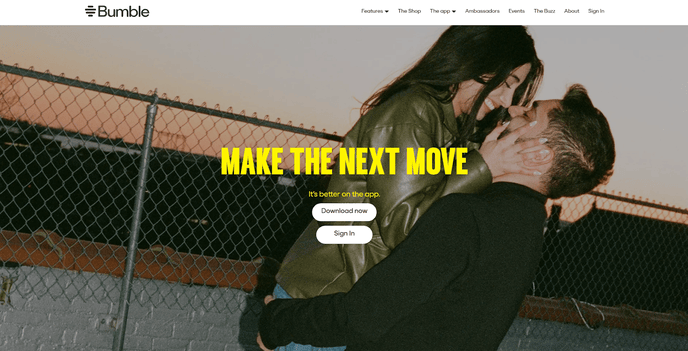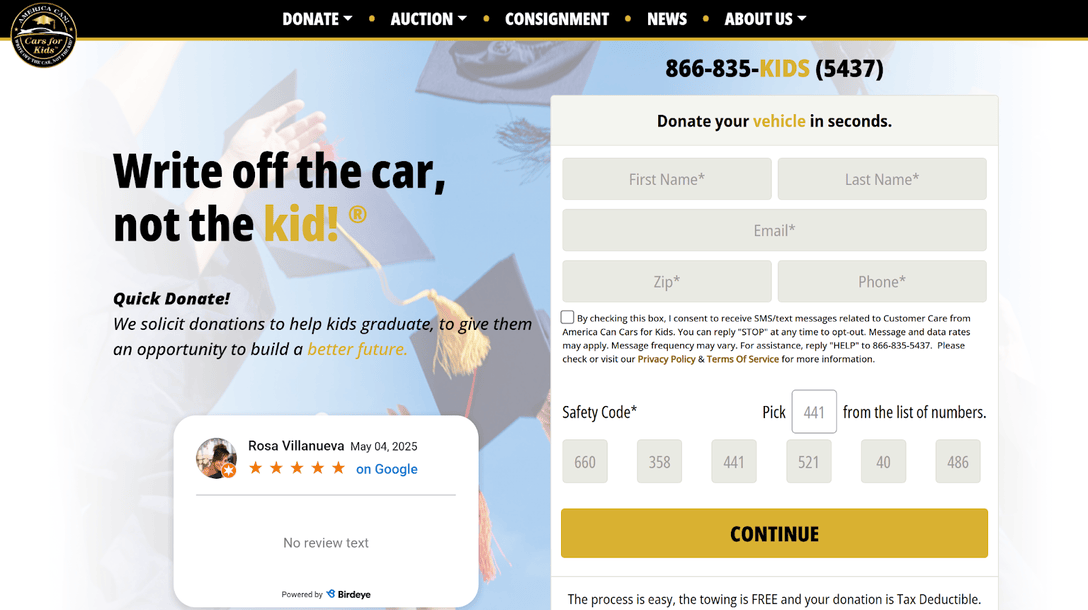Is Bumble a Scam?
Laura Martisiute
Reading time: 9 minutes

Table of Contents
If you’re thinking of using Bumble, you need to know: Is Bumble a scam?
Below, we explain whether Bumble is a scam and discuss some steps you can take to improve your safety when using this app.
What Is Bumble?
Bumble is a dating and social networking app.

In heterosexual matches, when one person has selected “man” and the other has selected “woman” on their profiles, only the user who selected “woman” can send the first message.
If both people select the same gender (including any non-binary options) or are connecting as friends, either person can send the first message.
Once you’ve matched, you have 24 hours to send a message.
Bumble was founded by Whitney Wolfe Herd in 2014, who also co-founded Tinder.
In addition to dating, Bumble is a platform where you can find friends, professional mentorship, and networking opportunities.
Bumble is free to download and use, but it also offers premium tiers that include features such as being able to see who has liked you and rematching expired connections.
Is Bumble a Scam?
No, Bumble is not a scam. It’s a legitimate dating and social networking app.
The platform gets positive reviews from third-party sites.
For example, PCMag gives Bumble a rating of 4.0 out of 5.0, which is “Excellent.”
User reviews are more mixed:
- 1.3 out of 5.0 stars (from 2,090 reviews) on Trustpilot.
- 3.9 out of 5.0 stars (from 1,273,649 reviews) on Google Play.
- 4.3 out of 5.0 stars (from 1,660,105 reviews) on the App Store.
- 1.3 out of 5.0 stars (from 289 reviews) on Consumer Affairs.
On internet forums like Reddit, users also report varying experiences, but overall, they’re fairly positive.

There are some posts from people claiming that they think Bumble is a scam because, despite paying for premium features, they’ve had zero responses. However, the consensus appears to be that your success rate depends on your profile.

Bumble scams
As is the case with most big platforms, bad actors use Bumble to scam people.
Popular Bumble scams include sextortion (where a user asks you to share nude pictures and then attempts to extort you) and pig butchering (where they build trust with you over time, often weeks or months, before manipulating you into investing in fake or fraudulent financial schemes, usually involving cryptocurrency).

In 2025, Bumble introduced an ID verification feature on its platform in select countries.
This feature allows users to validate their identities and provide details such as age. Users can filter potential dates by whether their IDs have been verified or ask for matches to complete verification before the meeting.
Security
In its privacy policy, Bumble says it takes “appropriate and reasonable security measures” to protect your information. However, it doesn’t describe these measures.

Bumble meets Mozilla Foundation’s minimum security standards.

This is because Bumble:
- Provides encryption.
- Requires strong passwords.
- Pushes out security updates.
- Manages vulnerabilities through its bug bounty program.
- Has a privacy policy.
Additionally, in its privacy policy, Bumble states that it investigates and verifies all third parties it works with to ensure they have adequate data protection and information security measures in place.
In 2020, security researcher Sanjana Sarda discovered serious API vulnerabilities in Bumble that exposed sensitive user information, including political views, education, and proximity for nearly 100 million users.
In 2021, a vulnerability in the app allowed attackers to determine users’ real-time locations.
Privacy
Bumble explains the kind of data it collects, for what purposes, and with whom it shares it in its privacy policy.
It collects the following information:
- Registration information, e.g., name, username, gender identity, location, email address, mobile number, sexual preference, photos, birth (date, time, and location), and login information for social media accounts you connect to your Bumble account (such as Facebook).
- Linked social media information. The exact information collected varies depending on which platform you use to register or sign in to Bumble. For example, if you register or sign in with Facebook, you share your email address, date of birth, profile photos, gender, pages you like, and current town or city.
- Profile verification and ID verification, including biometric information.
- Purchase information, i.e., payment information.
- Geolocation information, if you give geolocation access to Bumble on your device.
- Device information, e.g., the device’s unique identifier, model, operating system, log and usage data, and your device’s address book (optional).
- Photo information, e.g., photos people spent the most time looking at or photos with the best lighting (you can opt out of this feature, though).
- Link information, i.e., how you interact with links while using Bumble.
- Messages, i.e., the content of your Bumble messages, to identify topics, trends, and sentiments across users.
- Surveys and other contributions. Participation is optional.
- Customer support contact information, i.e., IP address, email address, and the information you share about your issue.
- Cookies and similar technology information, i.e., personal data from cookies or similar tech.
Bumble states that it utilizes the above information to provide its services, communicate with you, personalize the content you see, conduct research, test new technologies and processes, resolve disputes, investigate fraud, protect its legal rights, and safeguard its users and third parties.
To match you with other users, Bumble’s matching algorithms use your profile information, your app activity, device coordinates, and whether you’ve verified your photo.

It shares your information with service providers, moderators, payment processing and telecommunications companies, marketing service providers, Facebook, law enforcement, and other Bumble Group companies.
It may also share your data in the event of a business transfer, such as a merger or acquisition.
The company may share aggregated information.
Bumble says it will keep the photos you can for verification purposes for no longer than 3 years after your last interaction with the platform.
It will keep records of your communications with customer support for 6 years after your account is deleted.

If you verify your ID, your selfie and ID are compared by Bumble’s third-party partner (Veriff), who retains the selfie and the photo of your ID for up to 72 hours.
If you delete your Bumble account, it is no longer viewable on the app. You can restore your account for up to 28 days after it has been deleted.
After 28 days have passed, Bumble will start deleting your personal information, with some exceptions, such as when it is necessary to comply with a law or for fraud prevention purposes.

Bumble notes that even after you delete your account or profile, your information may still be accessible if it was previously copied, shared, or stored by others.
The company’s network includes services in the US, EU, UK, and Russia (for users from there).
Depending on where you live, Bumble says you may be able to exercise privacy rights like the right to be informed or the right to erase.
Concerns over data sharing and sale
Civil society organizations, including Mozilla Foundation and the Electronic Frontier Foundation, have repeatedly called on Bumble to clarify its data collection and sharing practices.

It’s unclear whether Bumble sells or shares user data with third parties, including data brokers, and whether users can fully delete their data.
Advocates argue that users should not have to opt out to prevent their data from being sold but instead should have to opt in, especially given the sensitive nature of dating app data.
External privacy policy evaluations
Mozilla Foundation gives Bumble a *Privacy Not Included warning label.

Among the things called out by the foundation is the fact that Bumble reads users’ messages to identify topics and sentiments across users. Although Bumble claims to take steps to remove personally identifiable information before reviewing messages, the foundation finds this concerning.
Terms of Service; Didn’t Read (ToS;DR), a project that rates internet services’ terms of service and privacy policies, gives Bumble a “Grade D.”

This is the second worst grade and means “The terms of service are very uneven, or there are some important issues that need your attention.”
Some of the potential issues ToS;DR highlights include the following:
- Private messages can be read.
- Logs are kept for an undefined period of time.
- The service may collect, use, and share location data.
- You waive your right to a class action.
- Your personal data is used to employ targeted third-party advertising.
In 2023, a class-action lawsuit was filed against Bumble, alleging that the app collects biometric data without first obtaining user consent.
So, Should You Use Bumble?
Depends. Bumble is a reputable dating and social networking platform.
However, it has had its fair share of security concerns. It’s also not great for privacy.
See also:
How to Use Bumble Safely and Privately
- Create a strong password. And don’t reuse it elsewhere on the web.
- Opt out. In the app’s privacy preferences, opt out from personalized ads and data collection that isn’t essential.
- Limit geolocation sharing. Only allow geolocation when using the Bumble app.
- Don’t overshare in your profile. Avoid including your full name, workplace, home address, or school in your Bumble profile. Keep photos that reveal your location (like your house or license plate) out of your profile.
- Turn off location. Bumble uses your location to show nearby matches. You can’t turn this off entirely, but you can avoid checking in from your exact home or work address.
- Hide your profile with Incognito Mode (paid feature). With Incognito Mode, you can swipe on others without appearing publicly unless you swipe first.
- Don’t link your social media. Don’t sign into Bumble with your Instagram or Facebook unless you’re comfortable revealing more personal info.
- Watch out for red flags. These include vague profiles or too-good-to-be-true stories, as well as quickly moving conversations to WhatsApp. If someone you matched with mentions money, crypto, or “investment opportunities,” they’re probably a scammer.
- Don’t share sensitive information. Never give your address, banking info, ID, or passwords. Don’t share intimate photos, especially early on.
- Use Bumble’s in-app features. Stick to the chat function until you’re sure the person is safe. Use video chat before meeting in person to verify each other’s identities.
- Request deletion. If you stop using the app, request Bumble to delete your data and close your account.
Our privacy advisors:
- Continuously find and remove your sensitive data online
- Stop companies from selling your data – all year long
- Have removed 35M+ records
of personal data from the web
Save 10% on any individual and
family privacy plan
with code: BLOG10
news?
Don’t have the time?
DeleteMe is our premium privacy service that removes you from more than 750 data brokers like Whitepages, Spokeo, BeenVerified, plus many more.
Save 10% on DeleteMe when you use the code BLOG10.
















